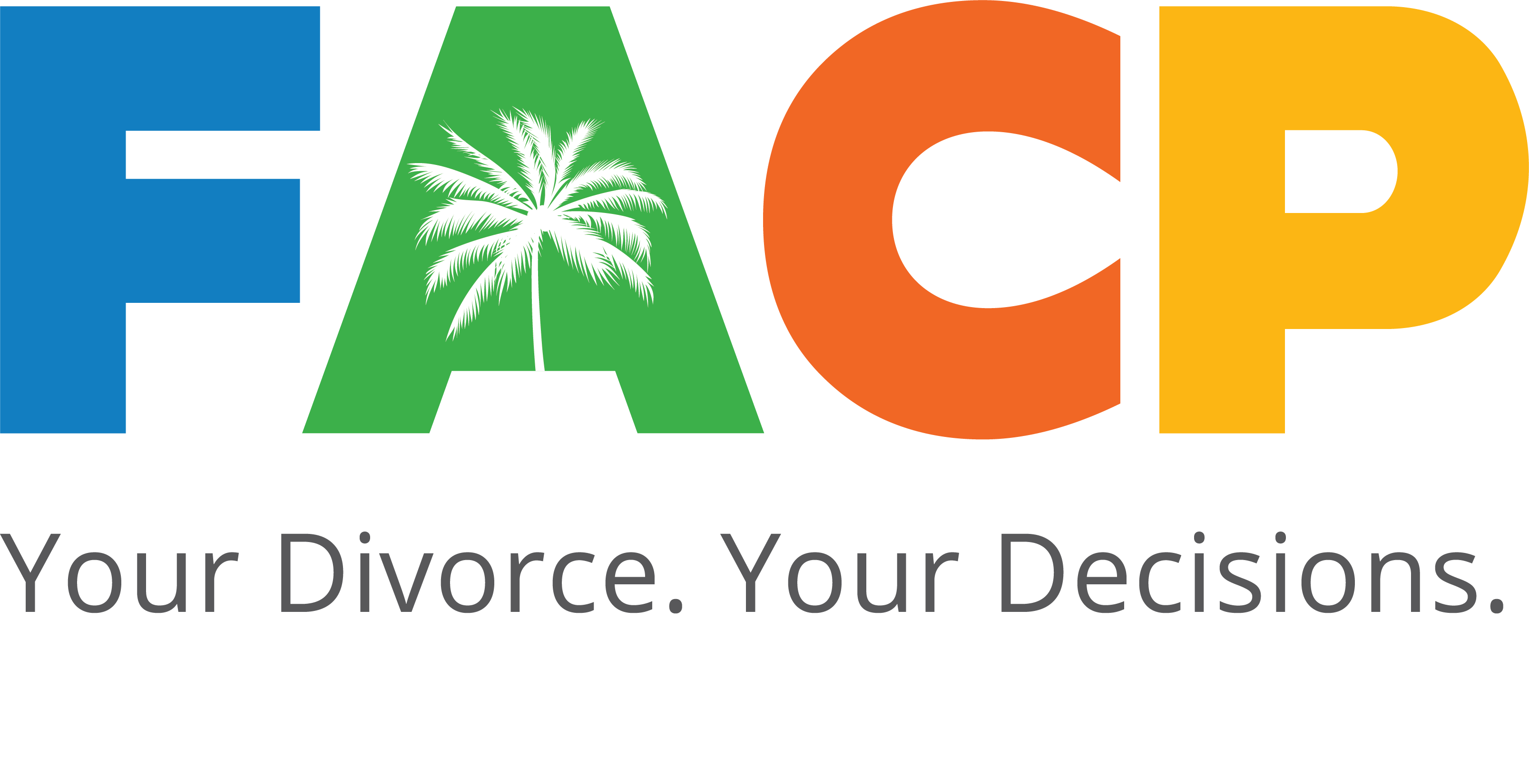Collaborative Spotlight: Robert Merlin
Collaborative Family Law dates back to 1990 and it serves as an alternative to adversarial divorce. It’s gaining popularity nationally, as well as internationally.
In this article, we are interviewing Robert Merlin. We caught Bob in the middle of his busy schedule and asked him to share his wisdom and experience in Collaborative Family Law.
- Robert Merlin is recognized many times over, as one of the top lawyers in Florida, practicing law in Florida for over 35 years. He is committed to resolving divorce in the least adversarial way possible, and is known for helping clients to reach settlement.
- Bob is also a trainer with Florida Collaborative Trainers, an organization that conducts Introductory Interdisciplinary Trainings for Collaborative professionals. He is one of the pioneers that helped expand Collaborative Law in Florida.
Can you explain how the Collaborative Process differs from other processes like litigation or mediation?
The Collaborative Process was created to empower parties who have a dispute, to determine their own destiny. So instead of litigating and going to court, and empowering a judge to make a decision that affects their family and their future, the parties make their own decisions for the benefit of themselves and their children. Everyone involved signs a Participation Agreement, agreeing not to go to court.
In the Collaborative Process we recognize that the statutes which govern judges, and which the vast majority of the attorneys follow, set a minimum standard. They were not created to deal with particular issues in a family; but in litigation, the statues seem to create the standard that is applied to most families, regardless of the particulars of each family. In the Collaborative Process the parties decide their priorities and determine their own destinies.
We are constantly reminding the parties about their children. In fact, many of the practitioners have the clients bring photographs of their children, and put them right there on the table so they don’t lose focus… to remind them that this is about the children, and they need to consider the welfare of their children moving forward… to remind them that this is about restructuring the family rather than tearing it apart.
I talk with my clients about being able to walk down the aisle with their child, as their child is getting married. I’ve had clients in the Collaborative Process, who wanted to be able to share Christmas with each other, because they have grandchildren. They did not want animosity, so they made decisions that preserved their relationship rather than destroyed it.
In the Collaborative Process, we make a commitment to be respectful to each other, not just the professionals, but the parties. We encourage clients not to think about going out and “getting” the other party, but rather to think about a way that will benefit everybody in the long run.
As Collaborative professionals we set the tone, modeling the process of civility. Attorneys work together to find solutions, instead of fighting each other. This is professionalism at a higher level. We treat each other with respect, thereby showing the clients that they can treat each other with respect as well.
The Collaborative Process covers the entire gamut, from gathering information, identifying the issues, brainstorming to come up with potential solutions, negotiating with the other side, preparing all of the documents that are necessary to be filed in court, and representing the client in court, which in the Collaborative Process is just a five-minute uncontested final hearing.
And also, another very important difference in the Collaborative Process is confidentiality and privacy. The vast majority of Collaborative cases take place before anything is filed in the public record. The family’s “dirty laundry” does not have to be exposed to the public, as it is in litigation.
So how was this process developed?
When I teach Collaborative, I talk about “the power of one”. Literally there was one person who came up with this concept. An attorney by the name of Stu Webb created this concept of empowering the parties to make their own decisions outside of the court system. Simultaneously, but a little bit later, a psychologist in California, named Peggy Thompson, was also helping her clients resolve their differences outside of the judicial system.
And this has evolved into a multidisciplinary process with a neutral mental health professional and neutral financial professional used as part of the Collaborative team.
In Florida the mental health professional helps resolve issues with respect to children, especially preparing a parenting plan. Instead of two attorneys spending time at high hourly rates on this issue, there is one mental health professional at a much lower hourly rate… And oh, who by the way has a much better educational background than the attorneys typically do, regarding child development.
Traditionally attorneys took the client to court where issues were resolved. Focus was on dividing the assets, getting some timesharing with the children, and dealing with support, but underlying issues were never addressed.
In the Collaborative Process, the mental health professional can get to those issues and deal with them. For example, one parent may be riskier than the other parent. So let’s be aware of this and similar concerns which are not addressed in mediation or litigation. They are addressed in the Collaborative Process.
The mental health professional helps the entire team, including the professionals, to stay on task, and also to be aware of what we are doing. Sometimes we, as humans communicate things that we don’t exactly mean, through our facial expression, body language, all sorts of ways. This is what mental health professionals have studied, and are experts in. So they help everybody to communicate better and stay in the process, to remove blocks that may be getting in the way.
The mental health professional facilitates the process, but does not provide therapy for the parties. In their profession they are prohibited from having duals roles. If additional therapy is needed, they refer clients out to other professionals.
Do Collaborative professionals need special interdisciplinary training?
There is nothing, at this point, that legally requires anybody to get trained. But I can tell you based upon the very large amount of time I have spent being trained myself, there’s no end to the amount of education that you need to do this properly.
Every single day that I’m involved in the Collaborative Process, I’m learning how to do things better. I’ve learned a huge amount about mental health issues, things that I never studied in school, and I never would have been a part of had I not gotten into the Collaborative Process.
This process requires a paradigm shift. It really means thinking, acting, talking in a different way, not thinking with a litigator’s hat on. Instead of thinking about our client “winning”, as litigators do, we think in terms of what is in the best interest of this family, making the best of a difficult situation for both parties and their children.
We have an obligation to give them all of the information that they need. The statutes are part of it, but we must also be creative with them, and help craft a variety of options. We educate and advise them, and ultimately they have to make the decision.
And because the professionals work together as a team, it’s not just legal advice that the parties receive. We are giving financial advice, child rearing advice, and mental health advice. All of these benefits are coming to the parties through the Collaborative Process.
Now I understand that you are resolutely and persistently working to get legislation through the Florida State House and Senate. Can you talk about that?
The purpose of the legislation is to establish standards for practice of professionals in the Collaborative Process. And for the public to know that if someone holds himself or herself out as being a Collaborative professional, that they are doing certain things.
In part it is to protect the public; in part it is to create uniformity around the state. The Collaborative Process is nationwide and is in more than 24 countries.
The law in Florida is based on the Uniform Collaborative Law Act and Rules. It’s been adopted in 14 states so far, and we will eventually get it passed in Florida. We came very, very close in the last two years, but the Speaker of the House did not bring it to the floor for a vote, even though it had been passed unanimously in all committees in the House and the Senate, and passed unanimously in the Senate. Hopefully we will be able to get it done next year.
RECENT NEWS UPDATE: On March 4, 2016, the Florida Legislature passed HB-967, the “Collaborative Law Process Act,” which seeks to support the out-of-court settlement of divorce, paternity, and other family law cases. Florida joins 13 other states and the District of Columbia in passing a collaborative law bill.
Congratulations and thank you to Robert Merlin, for his energy and effort in this success.
What inspired you to take this on?
I just strongly believe that this is the right thing to do. I believe in making the Collaborative Process more prevalent, more available to professionals and the public.
I don’t think that the judicial system was created to deal with family issues. You have a judge sitting, making a decision, and what makes that judge an expert in child development or in valuation of a business?
I believe strongly in the process. I used to be a litigator. I don’t take any more litigated cases because I think it’s nonsense. Virtually everyone should be able to resolve their differences without going to court. Even in difficult cases you don’t have to just say, “I’m going to court. I’m going to make all sorts of allegations against the other party that become part of the public record.” It’s just so destructive. It is not necessary.
And actually with the statute, I think it will reduce the amount of money being spent by the government on the judicial system. This is a good thing because there’s always a battle with the judiciary getting enough funding from the legislature. So this is a win-win for everybody.
What is your vision for the future of collaborative law?
Well I see a statue being passed; I see rules being established by the Florida Supreme Court in the next couple of years, to create standards for how attorneys and other professionals act, similar to rules that exist for mediation.
And the big thing is I see the Collaborative Process being used in non-family cases. We recently trained an estate and probate attorney who wants to bring it into that world.
I believe that there has been a shift in society the last few years. Fewer people want to go out and destroy other people. They want to resolve their differences and go on with their lives. They don’t want to spend a lot of money. They don’t want to spend the emotional capital. They just want to move on.
All of us have heard the nightmares of divorces that have been terrible. Well the same thing is true with business disputes or disputes over a family estate. Let’s get these disputes settled, so we can have harmony instead of animosity.
For more information about Collaborative Law, you can visit the LinkedIn profile of the Florida Academy of Collaborative Professionals.
And if you’re collaborative professional, and you’d like to be interviewed, then contact Gladys Marie Clancy, 772-485-5597 or email Gladys (at) moveonwithoutbitterness (dot) com.
Author: Gladys Marie Clancy is a communication specialist working with couples who are considering or have already gotten divorced, to help them move on.






